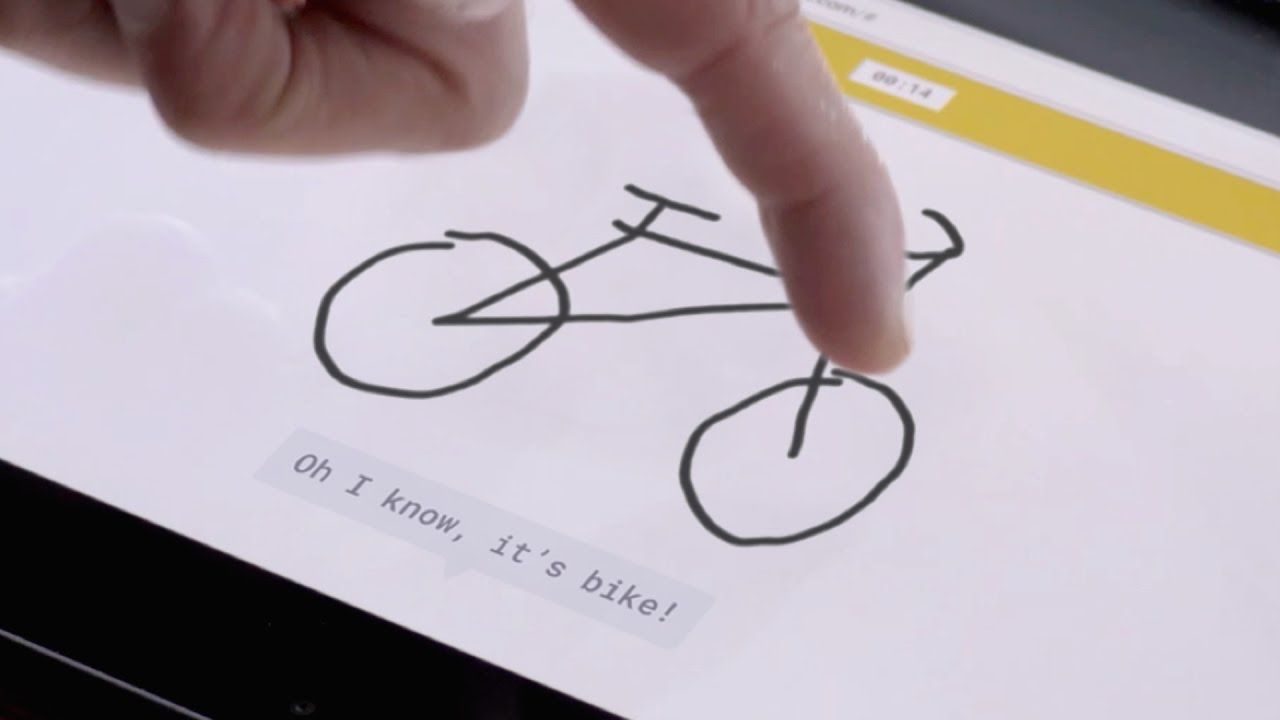Archive for the ‘robotics/AI’ category: Page 2193
Nov 15, 2016
This Google-powered AI can identify your terrible doodles
Posted by Shane Hinshaw in category: robotics/AI

As part of Google’s slew of artificial intelligence announcements today, the company is releasing a number of AI web experiments powered by its cloud services that anyone can go and play with. One — called Quick, Draw! — gives you a prompt to draw an image of a written word or phrase in under 20 seconds with your mouse cursor in such a way that a neural network can identify it. It’s both a hilarious and fascinating exercise with broader implications for how AI can self-learn over time in key AI research areas like image recognition and optical character recognition.
Quick, Draw! is a great way to familiarize yourself with how neural networks work to identify objects and text in photos, which is one of the most common forms of AI-guided software techniques we see daily on platform’s like Facebook and Google Photos. As you start to craft the doodle, Quick, Draw!’s software automaton will start yelling out words and phrases it thinks you’re trying to illustrate. As you get closer to the finished product, the voice starts to become a good indication of how your drawing could be misinterpreted as something else. If you’re on point, however, the neural network will hone in on the object and guess correctly.
Continue reading “This Google-powered AI can identify your terrible doodles” »
Nov 15, 2016
The Future of Surgery Is Robotic, Data-Driven, and Artificially Intelligent
Posted by Elmar Arunov in categories: biotech/medical, robotics/AI
As far back as 3,500 years ago ancient Egyptian doctors were performing invasive surgeries. Even though our tools and knowledge have improved drastically over time, until very recently surgery was still a manual task for human hands.
When it came out about 15 years ago, Intuitive Surgical’s da Vinci surgical robot was a major innovation. The da Vinci robot helps surgeons be more precise and dexterous and to remove natural hand tremors during surgery.
In the years since da Vinci first came out, many other surgical robots have arrived. And today there’s a new generation coming online, like the Verb robot, a joint venture between Google and Johnson and Johnson. This means surgery is about to get even more interesting. Surgical robotics will be able to do more than just improve dexterity and reduce incision size…
Continue reading “The Future of Surgery Is Robotic, Data-Driven, and Artificially Intelligent” »
Nov 15, 2016
5 Big Tech Trends That Will Make This Election Look Tame
Posted by Elmar Arunov in category: robotics/AI

If you think this election is insane, wait until 2020.
I want you to imagine how, in four years’ time, technologies like AI, machine learning, sensors and networks will accelerate.
Continue reading “5 Big Tech Trends That Will Make This Election Look Tame” »
Nov 15, 2016
At Sundar Pichai’s Google, AI Is Everything–And Everywhere
Posted by Klaus Baldauf in category: robotics/AI

A year into his tenure as CEO of Google, the low-key leader talks about what the company is, where it’s going, and how it gets things done.

Trailer for Ghost in the Shell.
Based on the internationally-acclaimed sci-fi property, Ghost in the Shell follows Major, a special ops, one-of-a-kind human-cyborg hybrid, who leads the elite task force Section 9. Devoted to stopping the most dangerous criminals and extremists, Section 9 is faced with an enemy whose singular goal is to wipe out Hanka Robotic’s advancements in cyber technology.
Nov 14, 2016
Coming to Grips with Artificial Intelligence’s Many Manifestations
Posted by Karen Hurst in categories: habitats, robotics/AI, transportation
The categories of AI.
Click here to learn more about author James Kobielus.
Artificial intelligence (AI) is all the rage these days. However, people often overlook the fact that it’s a truly ancient vogue. I can’t think of another current high-tech mania whose hype curve got going during the days when Ike was in the White House, “I Love Lucy” was on the small screen, and programming in assembly language was state of the art.
Continue reading “Coming to Grips with Artificial Intelligence’s Many Manifestations” »
Nov 14, 2016
CertiKOS: A Step Toward Hacker-Resistant Operating Systems
Posted by Karen Hurst in categories: cybercrime/malcode, internet, robotics/AI
Researchers from Yale University have unveiled CertiKOS, the world’s first operating system that runs on multi-core processors and shields against cyber-attacks. Scientists believe this could lead to a new generation of reliable and secure systems software.
Led by Zhong Shao, professor of computer science at Yale, the researchers developed an operating system that incorporates formal verification to ensure that a program performs precisely as its designers intended — a safeguard that could prevent the hacking of anything from home appliances and Internet of Things (IoT) devices to self-driving cars and digital currency. Their paper on CertiKOS was presented at the 12th USENIX Symposium on Operating Systems Design and Implementation held Nov. 2–4 in Savannah, Ga.
Computer scientists have long believed that computers’ operating systems should have at their core a small, trustworthy kernel that facilitates communication between the systems’ software and hardware. But operating systems are complicated, and all it takes is a single weak link in the code — one that is virtually impossible to detect via traditional testing — to leave a system vulnerable to hackers.
Continue reading “CertiKOS: A Step Toward Hacker-Resistant Operating Systems” »
Nov 14, 2016
Chat bot helps immigrants complete their visas
Posted by Karen Hurst in category: robotics/AI
Nov 14, 2016
The Future of Extremism: Artificial Intelligence and Synthetic Biology Will Transform Terrorism
Posted by Karen Hurst in categories: bioengineering, biological, military, robotics/AI, terrorism
There weren’t many people who had heard of bioterrorism before 9/11. But shortly after the September 11th terrorist attacks, a wave of anthrax mailings diverted the attention of the public towards a new weapon in the arsenal of terrorists—bioterrorism. A US federal prosecutor found that an army biological researcher was responsible for mailing the anthrax-laced letters, which killed 5 and sickened 15 people in 2001. The cases generated huge media attention, and the fear of a new kind of terrorist warfare was arising.
However, as with every media hype, the one about bioterrorism disappeared quickly.
But looking toward the future, I believe that we may not be paying as much attention to it as we should. Although it may be scary, we have to prepare ourselves for the worst. It is the only way we can be prepared to mitigate the damages of any harmful abuses if (and when) they arise.














